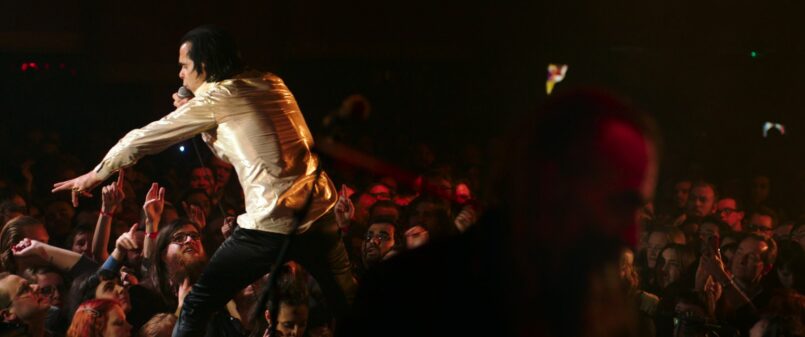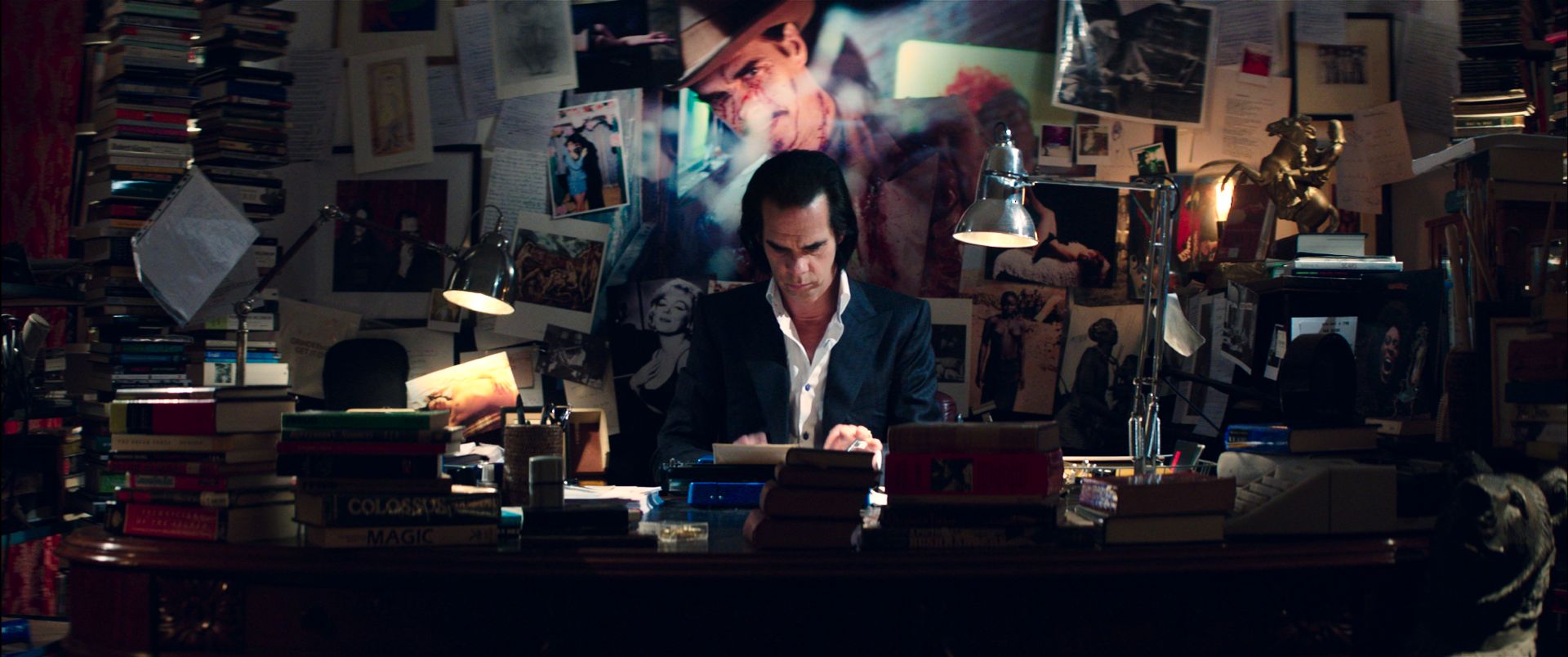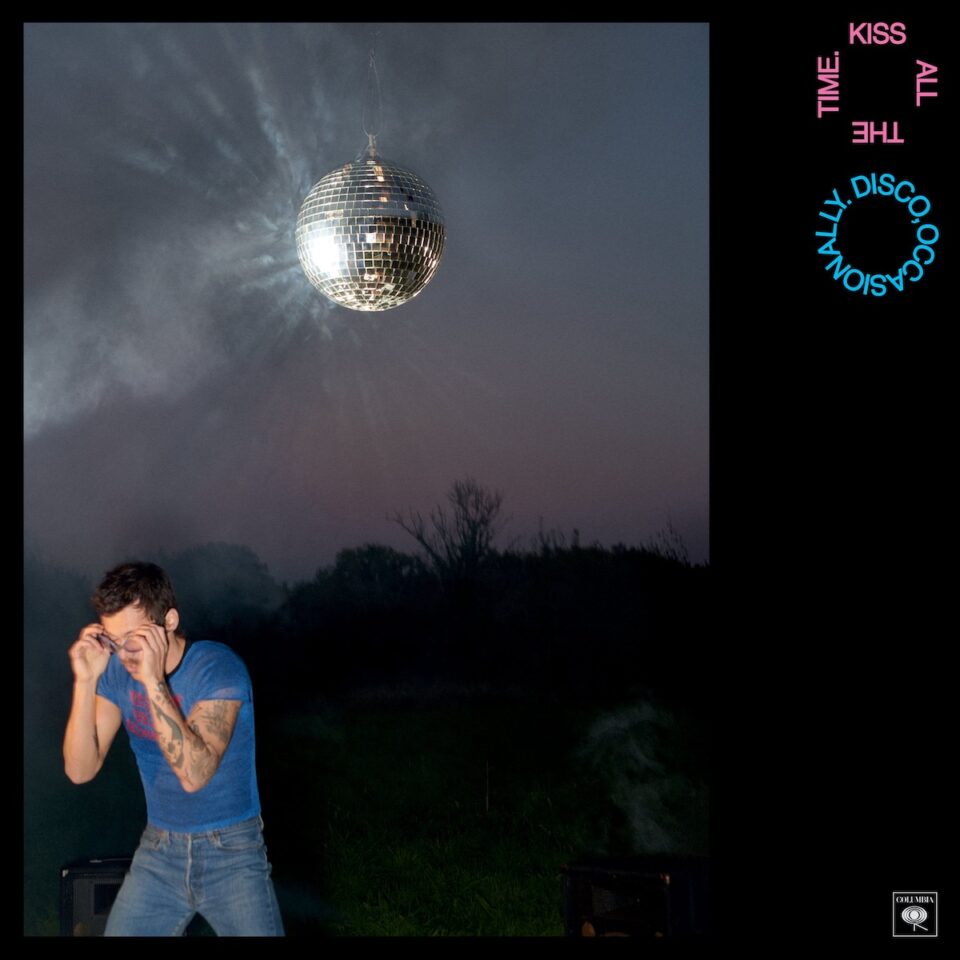20,000 Days on Earth, Iain Forsyth and Jane Pollard’s staged documentary about Nick Cave, unfolds like a Nick Cave album; Push the Sky Away, to be precise, the record that Cave was writing, recording, and learning to perform while Pollard and Forsyth’s cameras rolled. The directing pair craft a hellish sky and place their star in its center, allowing him to quietly supernova over the course of the film. The cuts are quick and disorienting. Short bars of piano are played gently and repeated ad infinitum. Even the sky above Cave’s adopted hometown of Brighton billows in gradations of gray as it rolls in over the town. (“I can control the weather with my moods,” Cave says at one point. “It’s just that I can’t control my moods.”)
Though there’s a plot whose linear structure is mocked within the film’s first few minutes, the force of Cave’s personality and the intensity of his voice is what holds the film together. Forsyth and Pollard, who have worked with the Bad Seeds before, are certainly aware of this, and as their film evolves, it draws in tightly on his attempts to articulate the answer to an unasked question. Nearly every bit of dialogue in the film, from Cave’s therapist’s Freudian inquiries to Warren Ellis’s reminiscences of opening for Nina Simone to Kylie Minogue’s recollection of seeing Cave perform live for the first time, helps to shape a picture of how Nick Cave became the enigmatic performer, the heartbroken lover, the skinny Aussie with hips like an Elvis clock.
“I can control the weather with my moods,” Cave says at one point. “It’s just that I can’t control my moods.”
This is standard rock-doc stuff (not to mention the substance of every middle-aged American’s quest for meaning), but Forsyth and Pollard draw Cave with considerable grace. Early in the film, he mentions that songwriting to him is a series of convergences, “putting two disparate images beside each other and seeing which way the sparks fly.” Bringing the past directly into the present day—in the physical form of departed guitarist Blixa Bargeld, as well as projected shots from old Birthday Party shows courtesy of Cave’s archivist—gives greater credence to Cave’s early assertion that human beings are composed of their memories. “Your very soul and very reason to be alive are tied up in memory,” he tells his therapist. “I’ve been building up a kind of world through narrative songwriting. It’s a kind of world that is created about those precious original memories that define our lives and those memories that we spend forever chasing after.” It’s damned eerie to see him speak about himself and his motives as directly as he does here, and it causes particularly hot sparks to fly when Pollard and Forsyth follow it with footage of Cave delivering a tender version of “Give Us A Kiss.”

Nick Cave works his crowd in Drafthouse Films’ 20,000 Days on Earth.
“I’m not interested in that which I fully understand,” he says at the film’s end. “The words I’ve written over the years are just a veneer. There are truths that lie beneath the surface of the words, truths that rise up without warning like the humps of a sea monster and then disappear.” 20,000 Days on Earth isn’t without its own monsters, but it plumbs into the depths of its subject and, with great force, draws hump after hump up from the water until they’ve all flattened into their fullest form. And then we see the monster in all its glory. FL







